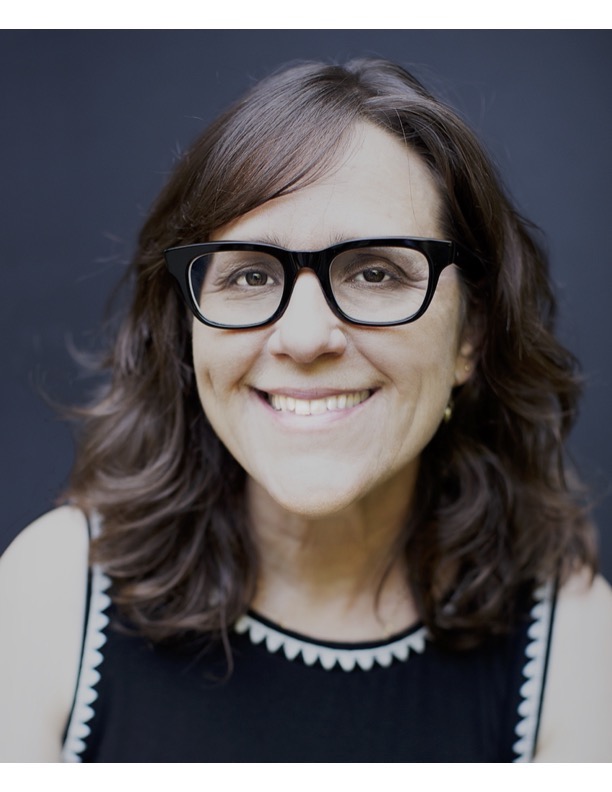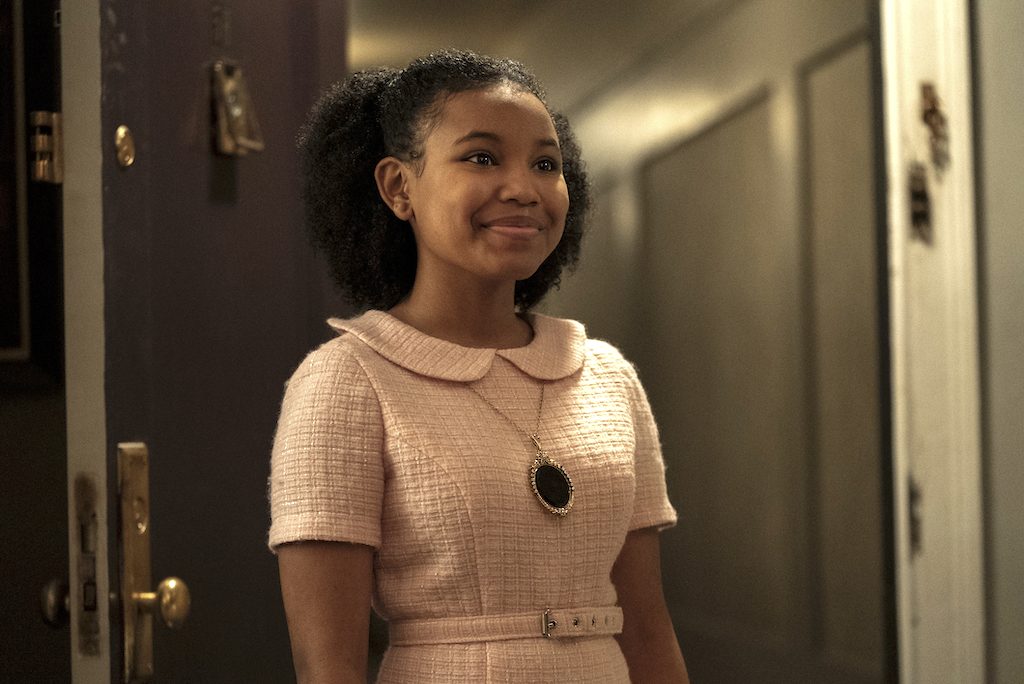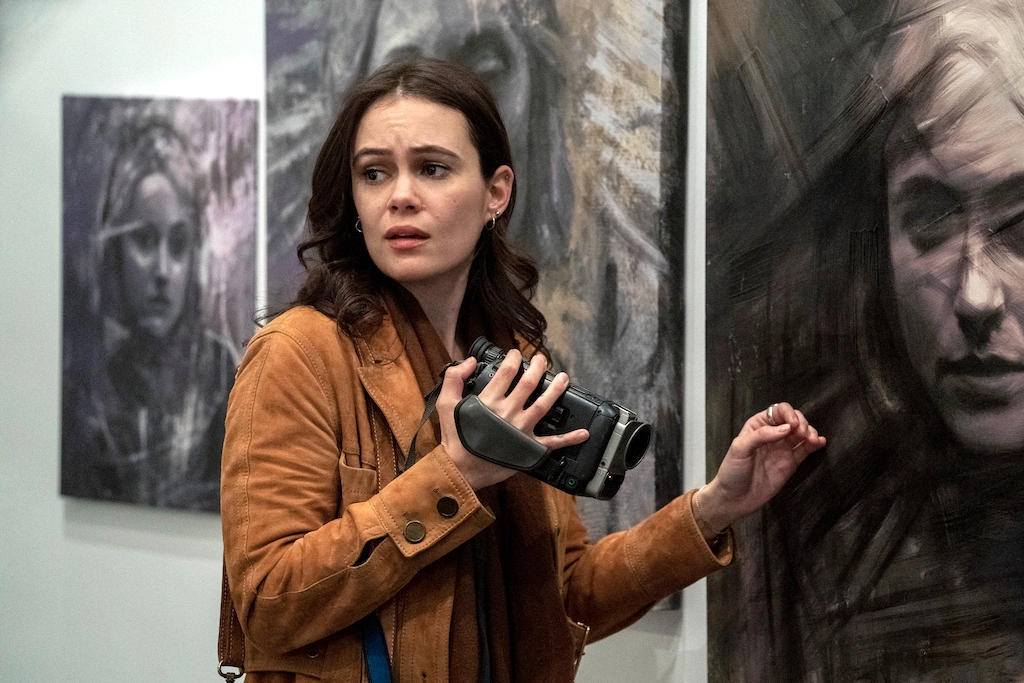“I came to screenwriting last,” said Rebecca Sonnenshine, who originally attended UCLA to become a filmmaker. “I’ve had a camera in my hand since I could hold one.”
After producing several indie films, working in development, and wearing a handful of other hats, Sonnenshine discovered she loved screenwriting. “Some people don’t love writing. They love the process of having written, but I love writing.”
“I do a lot of improv-ing in my head. I came to it last, but television felt like the place for me. Making television is like the perfect marriage of writing and filmmaking.”
As a writer, Sonnenshine is known for her work on The Vampire Diaries, Outkast, The Crossing, The Boys, and most recently, Archive 81.
Her latest endeavor is an an 8-episode series about an archivist hired to restore a collection of tapes, only to discover the tapes may lead to a dangerous cult.
Embodying Characters
“I think the mistake most [writers] make is that they’re telling what happens and not including the details of character, either in dialogue or premise. The best characters are specific.” Sonnenshine spent years doing screenplay coverage, but when it comes to writing her own characters, it’s all about embodying the character.

Rebecca Sonnenshine
“For me, it’s about improv with myself. I embody the character, which is why I often write things with only a few characters. You have to become them in a way. That’s the interesting thing about screenwriting.”
“Some people think the script is just what happens and everybody else fills in the details, but that’s just not true. To be a really good script, you have to be so specific that everybody is led to the same idea. It’s not all up for interpretation. It’s specific.”
Earlier in her career, she read the big spec sales like The Truman Show and American Beauty. “Those were big specs that sold and they were so specific. You read it and you could see the movie.”
“That was always the mistake [with bad scripts]. People just didn’t flesh it out enough, character-wise.” Since these films, most of the original work has moved into television. “What television became over the years is more character driven and television filled that spot. With television, you get a little more real estate to tell these stories and people like living with characters.”
Writing Archive 81
The characters Sonnenshine has lived with most recently are Dan Turner (Mamoudou Athie) and Melody Pendras (Dina Shihabi), who live in two worlds within Archive 81.
The supernatural mystery-horror is based on a podcast by the same name created by Daniel Powell. In the first episode, Dan is asked to work on a Hi8 tape from an apartment building that burned down in 1994.
On the tape, he sees the former life of Melody when she moved into the Visser apartment building, met a girl named Jess (Ariana Neal), and then went down a rabbit hole to discover things are not as they seem.

Jess (Ariana Neal) as Jess. Photo by Quantrell D. Colbert/ Netflix
For new scripts, Sonnenshine starts with a “messy outline.” She said, “You try to get the structure down, but then you start filling in random details. I would say what makes it feel real is that you’re bringing your own experiences into it.”
Specifically, she said you don’t have to have gone to Mars to write about going to Mars, but there is a specificity to life that should be included. “The things you like to eat, the music you like to listen to, those things add specificity to character.”
“Mine are these sprawling documents, so when I feel like I’m just adding details, you have to just start. Then, when I turn in an outline, I cut those things out. The executives don’t need the minute details.”
However, including a few small details helps pull people into the project. “It’s about choosing which small details you want to represent your project.”
Hidden Themes
Sonnenshine said you always want to go into a meeting knowing “what does my character want and why do they want it?” This way, she can better craft the pitch to connect with executives.
“Good executives want to know what your show is about, or what are the thematic beats you’re exploring. That’s why it’s so important to have a good grasp on those things.”
She continued, “Then you build that. The ‘why now?’ or ‘why this person?’ is always big. The old Disney term is the ‘I want’ song, but it’s the same for any project. Somebody has to say what they want and go after it.”
“Premise and theme are two different things. Themes are pretty standard. We go back to the same themes over and over again because we’re hard-wired as a society to want to explore them.”

Dan Turner (Mamoudou Athie). Photo by Quantrell D. Colbert/Netflix
As a producer/writer, Sonnenshine made a conscious decision to move into screenwriting. “I did start with dramas with a high concept element, but they were standard dramas,” she said.
“People are looking for a commercial hook. I’ve always loved horror or supernatural, so I took the things I was interested in thematically and put them into a premise that was more genre related. I definitely branded myself that way.”
Rules of Genre
“I am a skeptic, personally. I don’t really believe in ghosts, but as a premise, I think, what if the things everybody thinks are a hoax are real. What if ghosts are real? What if a kid could turn into a bug?”
This way, she can take the impossible and then go deeper with it. “If there are werewolves, how do you make people buy in? Don’t ask them to trust you. Make them believe that it’s real. That’s how I come to my projects. In the show, people think cults are non-sense, but let’s say they’re not.”
Once the concept is established, she then starts to improv characters with herself. “I don’t even write in coffee shops because I do tend to talk out loud a lot when I write. So when I started in a writers’ room, it’s slightly intimidating.”
The intimidation comes from the fear of then having to think on your feet in the room. “That was something to get used to, but I like it. I think there’s value to both, writing alone and writing in the room. It’s fun to have more brains to work on a problem. A lot of screenwriting is solving problems.”
“Archive 81 was very much in my wheelhouse. It’s got horror elements, but it was also a character driven story. Then, you just bring yourself into it — all your eccentricities and characters you know could be these characters.”
Modern Horror
“Horror is a genre of ideas. It can have social commentary. We’ve even moved into that with superheroes as well, like with The Boys. There are these tropes but it can be something bigger. Horror can be that as well.”
Netflix, in particular, seems to be moving in this direction thanks to some of the groundbreaking work on Mike Flanagan, along with new shows like Archive 81.
“Horror can be about human nature. Humanity is wired to be scared of certain things. What makes us afraid? We do all have these fears of someone hiding in the closet. It’s a humanist genre if you allow it to be.”
“With this story, there is a big framework, but it comes down to these characters and how they interact within this world.”
As for writing advice, Sonnenshine said, “Don’t try to think about what people are looking for. It’s a business, but you’ll only rise to the top if you bring yourself and your POV into a story. You become a writer by writing. You can’t map out your path right away. You have to write a lot to see what speaks to you and what you can bring that is unique to the game. Be patient and give yourself room to write.”
This interview has been condensed. Listen to the full audio interview here.

